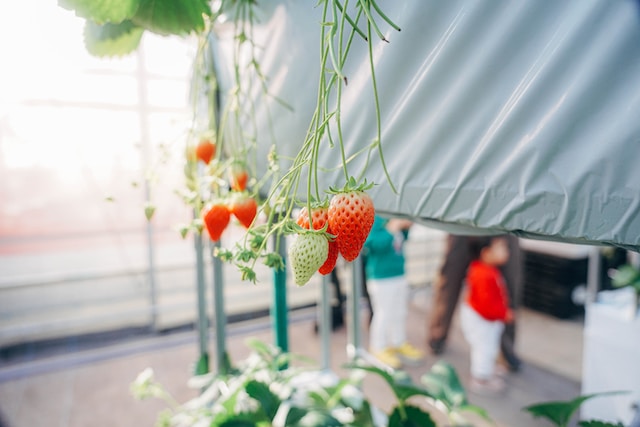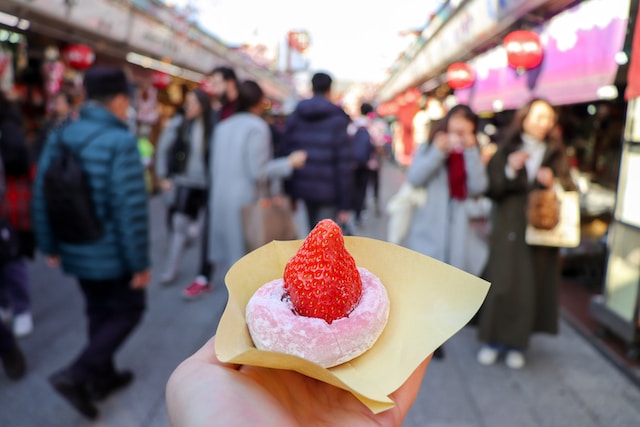
Have you ever heard of Japanese strawberries? While not considered as among the traditional ingredients of Japanese cuisine, these exquisite and sought-after strawberries have taken the world by storm with their unique size, flavor, and presentation. But what makes them so special, and how do the most exclusive varieties sell for over $100 a pound?
First, let’s talk about the size. Unlike your regular strawberries that you purchase from your local grocery store, Japanese strawberries are much larger, almost the size of a snooker ball. This is because farmers only allow one or two fruits to grow per plant, resulting in a far more significant and concentrated piece of fruit.
Now, onto the flavor. Japanese strawberries are precisely balanced in sweetness and tartness. They’re not overly sugary, unlike some other varieties, and the sweetness is not overwhelming. Instead, it’s subtle and pleasant to your palate, and it’s just the right amount of sweetness that complements the slightly sour taste.
Lastly, the presentation. Japanese strawberries usually come in fancy packages, making them a perfect gift for a special occasion or an intimate gathering. They’re often sold in boutiques, luxury department stores, and online shops, making them almost exclusively available to those who are willing to pay the price for such a delicacy. Many strawberry-flavored sweets also feature in Japanese tea ceremonies.
It’s no wonder that Japanese strawberries sell for over $100 a pound. Given their size, taste, and presentation, they’re an exotic and unique addition to your fruit basket. However, not everyone is willing to pay such a hefty price tag for fruit. It’s worth noting that their value lies not only in their rarity but also in the hard work and dedication of farmers who cultivate them.
In Japan, the process of growing strawberries is an art form. Farmers keep a keen eye on the temperature, humidity, and light exposure to ensure that each strawberry is the perfect size and ripeness. As a result, each piece of fruit has impeccable consistency, quality, and taste.

In conclusion, Japanese strawberries are much more than your regular fruit. They’re a delicacy that has taken the world by storm, making them sought after by fruit enthusiasts and gourmets. In spring, many Japanese brands even come up with limited-edition strawberry-themed and flavored products. Their unique size, taste, and presentation justify the high price tag, and they’re a testament to the hard work and dedication of Japanese farmers.

